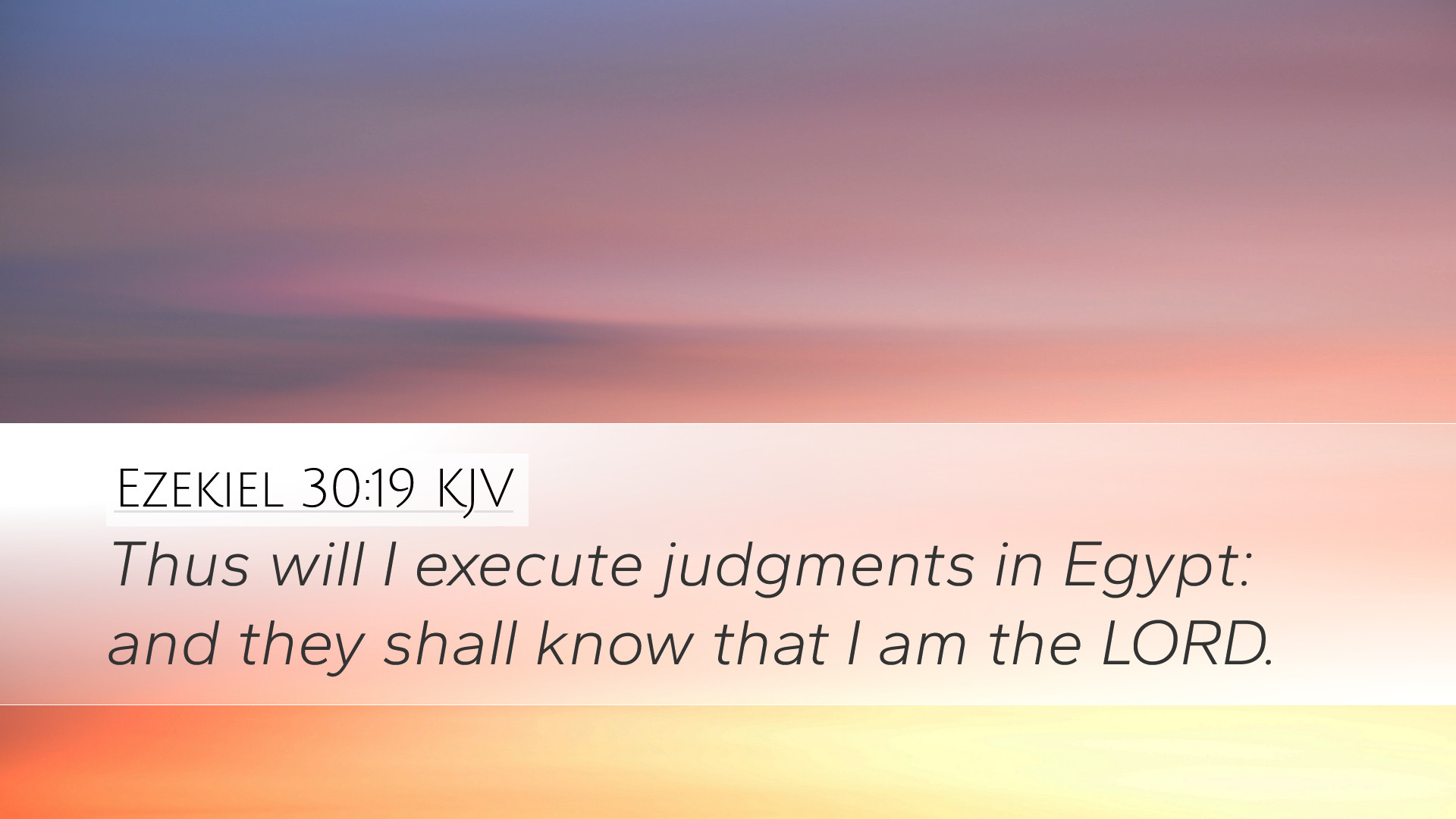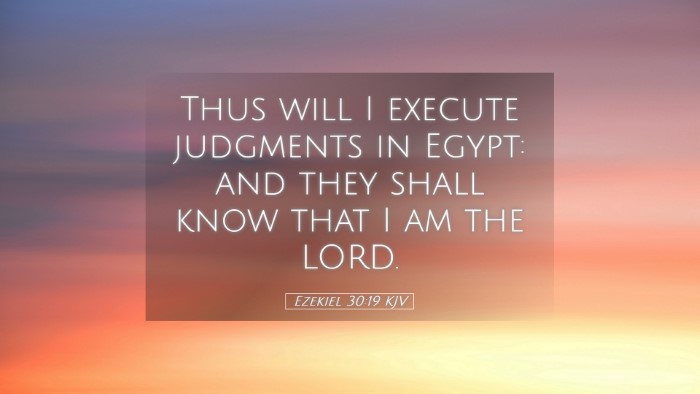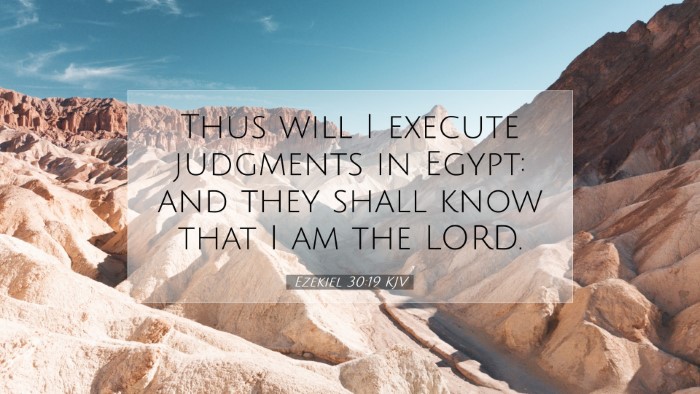Bible Commentary on Ezekiel 30:19
Ezekiel 30:19 states: "Thus will I execute judgments in Egypt: and they shall know that I am the LORD." This verse is part of a larger prophecy concerning the fate of Egypt, highlighting God’s sovereignty over nations and His role as the ultimate judge.
Contextual Background
The prophetic book of Ezekiel, written during the Babylonian exile, addresses the Israelites and the nations surrounding them. In the chapters preceding this passage, Ezekiel delivers oracles against various nations including Egypt, Israel, and others. The focus on Egypt, a powerful nation at that time, serves to underline God’s dominion even over those who appear formidable.
Verse Analysis
This verse describes God's impending judgments on Egypt. The judgment here is not arbitrary; it serves a purpose. It aims for the Egyptians to recognize and acknowledge the sovereignty of the Lord:
- Execution of Judgments: The phrase "I will execute judgments" indicates God's deliberate actions against Egypt. This is consistent with the broader theme in the prophetic literature where divine justice is a crucial component.
- Knowledge of the LORD: The goal of these judgments is to make the Egyptians know that He is the Lord. This call to knowledge emphasizes not just an intellectual understanding but a profound awareness of God's power and authority.
Theological Implications
From a theological perspective, this verse unveils several key concepts:
- Divine Sovereignty: The assertion that God will execute judgment emphasizes His control over human affairs. It reassures believers of God’s presence and authority, particularly in trying circumstances.
- Judgment and Acknowledgment: The relationship between judgment and acknowledgment is vital. When nations face divine judgment, it provides an opportunity for repentance and recognition of God's sovereignty.
- Inclusivity of Prophetic Judgments: The judgments issued toward Egypt reinforce the idea that all nations are accountable to God. There is a universal call to reverence Him, which echoes throughout Scripture.
Insights from Public Domain Commentaries
Several commentaries provide deeper insights into Ezekiel 30:19, each offering unique perspectives:
Matthew Henry
Matthew Henry notes that this passage reflects God's justice in dealing with proud nations like Egypt. He emphasizes that God's judgments serve to humble those who oppose His will. According to Henry, the ultimate purpose of judgment is to lead to recognition of God's authority, thus turning a heart of pride into one of humility.
Albert Barnes
Albert Barnes expands on the idea of God's judgments being a means to an end; he reflects on how God's intention behind the judgments is not simply to punish but rather to restore. He suggests that the judgments would reveal the emptiness of the false gods of Egypt, leading to a recognition of the one true God.
Adam Clarke
Adam Clarke, in his commentary, presents a detailed analysis of the historical context of Egypt's role in Israel's history. He connects the prophecy of judgment with Israel's historical reliance on Egypt and the dangers of turning to worldly powers instead of relying on God. Clarke asserts that the purpose of God's judgment is to clarify to the Israelites and other nations that only the Lord is to be trusted.
Practical Applications
For pastors, students, and theologians, Ezekiel 30:19 offers several practical applications:
- Understanding God’s Justice: This verse can lead to discussions about God’s justice in a modern context. Understanding that God is actively involved in the affairs of nations can reinforce the importance of prayer and intercession for national leaders.
- Encouragement in Trials: The realization that God's judgment ultimately leads to recognition of His sovereignty can provide comfort during times of persecution or hardship.
- Call to Witness: As God's judgments can lead to acknowledgment of His presence, believers are called to proclaim the gospel actively, emphasizing the sovereignty of God in a pluralistic society.
Conclusion
Ezekiel 30:19 encapsulates a profound divine reality: God's sovereignty and the purpose behind His judgment. It invites believers to recognize their dependence on Him and to articulate this truth in their ministry and study. The commentaries by Matthew Henry, Albert Barnes, and Adam Clarke enrich our understanding and application of this vital scripture, reminding us all of the inescapable truth that God is sovereign over all nations.


